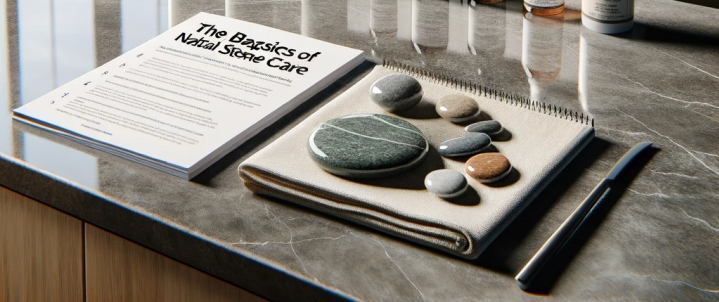The Role of pH in Stone Cleaning and Maintenance
At Stone Guys NY, we understand the intricacies of stone care, and a critical factor in this process is the pH level of the cleaning products used. The pH scale, which ranges from 0 to 14, measures how acidic or basic (alkaline) a substance is. Understanding the role of pH in stone cleaning and maintenance is essential to preserve the natural beauty and longevity of your stone surfaces. Here’s what you need to know.
Understanding pH
1. pH Scale:
- The pH scale measures the acidity or alkalinity of a solution. A pH of 7 is neutral, below 7 is acidic, and above 7 is alkaline.
2. Impact on Stone:
- The pH of a cleaner can significantly affect the stone’s surface. Acidic solutions can etch calcareous stones like marble and limestone, while highly alkaline solutions can dull the surface of many stones.
The Right pH for Different Stone Types
1. Calcareous Stones (Marble, Limestone, Travertine):
- These stones are sensitive to acids and can be etched by anything with a low pH, such as vinegar or lemon juice. For these stones, it’s crucial to use a pH-neutral or slightly alkaline cleaner.
2. Siliceous Stones (Granite, Slate, Sandstone):
- These stones are more resistant to acids but can still be affected by strong acids and bases. A pH-neutral cleaner is generally the safest choice.
Choosing the Right Cleaners
1. pH-Neutral Cleaners:
- These cleaners are safe for most stone types as they are balanced and less likely to cause etching or dulling.
2. Specialty Stone Cleaners:
- Some cleaners are specifically formulated for certain stone types and finishes. They have the right pH and often include sealants or other protective ingredients.
The Importance of Regular pH Testing
1. DIY Testing:
- You can use pH test strips to check the acidity or alkalinity of your cleaning solutions. This is especially important if you’re mixing your own solutions or if the product label doesn’t specify pH.
2. Professional Evaluation:
- For professional cleaning or if you’re unsure about the pH of your cleaners, consult with a stone care expert who can test and recommend the appropriate products.
pH and DIY Cleaning Solutions
1. Caution with Household Items:
- Common household items like vinegar and lemon juice are acidic and can damage sensitive stones. Baking soda, on the other hand, is alkaline and may leave a dull residue on the surface.
2. Proper Dilution:
- If you’re using a mild dish soap for cleaning, ensure it’s properly diluted to maintain a neutral pH.
Maintenance Tips
1. Regular Cleaning:
- Regular cleaning with the right pH-balanced cleaner can prevent the buildup of grime and minimize the need for more aggressive cleaning.
2. Immediate Spill Cleanup:
- Acidic spills (like wine or tomato sauce) should be cleaned up immediately to prevent etching, especially on sensitive stones.
3. Use of pH Modifiers:
- In some restoration processes, professionals might use pH modifiers to counteract specific stains or residues. This should only be done by experts who understand the stone’s reaction to pH changes.
Conclusion
The role of pH in stone cleaning and maintenance cannot be overstated. Using the correct pH-balanced cleaner is crucial to prevent damage and maintain the beauty of your stone surfaces. Whether you’re dealing with an ornate marble countertop or a sturdy granite floor, understanding and respecting the pH needs of your stone will ensure it remains a lasting and beautiful feature in your space. For more advice on the right products and methods for your specific stone type, or for professional cleaning services, contact Stone Guys NY at StoneGuysNY@gmail.com or (888) 786-6369. We’re here to help you navigate the complexities of stone care with expertise and care.

